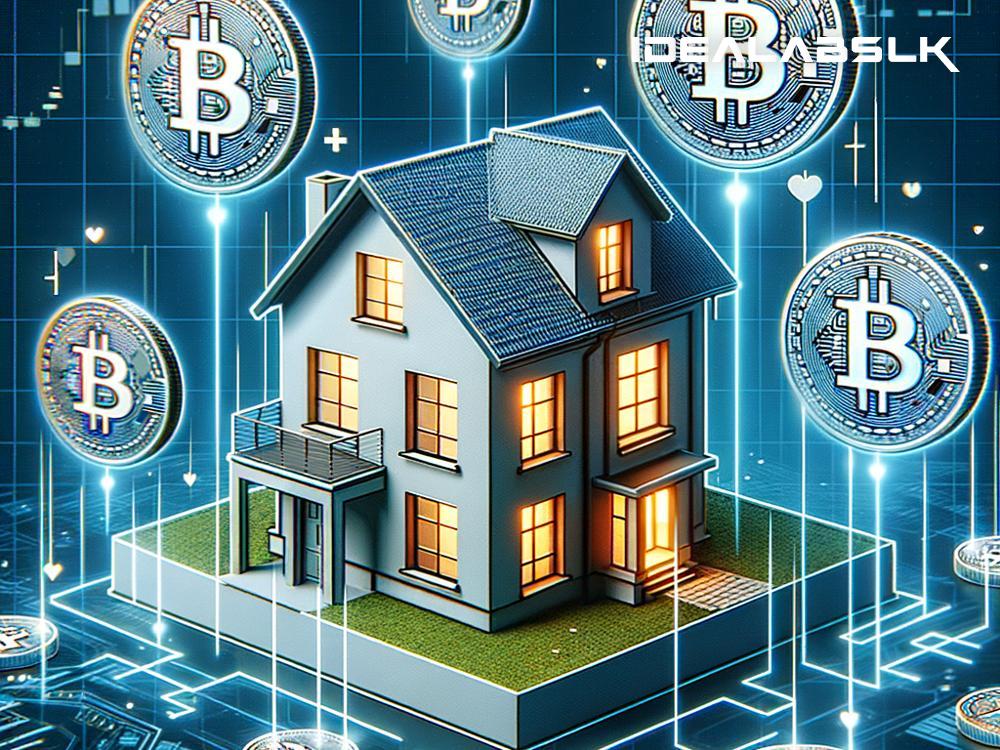Blockchain for Real Estate: Exploring the World of Property Tokenization and Fractional Ownership
Real estate investing has always been viewed as a game for the big players, requiring significant upfront capital and insider knowledge to navigate its complex landscape. But what if I told you that blockchain technology is revolutionizing this age-old industry, making property ownership accessible to the average Joe? Welcome to the world of property tokenization and fractional ownership, a futuristic approach that's making waves in the real estate market.
Breaking Down the Basics: Blockchain and Real Estate
Before we dive deep into tokenization, let's quickly brush up on what blockchain is. Imagine a digital ledger that's completely transparent, secure, and operates without the need for a central authority. That's blockchain for you. This technology is the backbone of cryptocurrencies like Bitcoin, but its potential extends far beyond digital currencies, touching sectors such as healthcare, supply chain management, and you guessed it — real estate.
Tokenization: The Art of Turning Real Estate into Digital Shares
Tokenization is essentially the process of converting rights to a real-world asset (like a property) into a digital token on the blockchain. Think of these tokens as pieces of a pie, where the pie represents a property. You can buy just a slice of the pie (a token), which means you own a fraction of the property. This is a game-changer because it dramatically lowers the entry barrier for real estate investment, allowing more people to get a piece of the action.
The Magic of Fractional Ownership
Fractional ownership isn't a new concept; it's been around in various forms, such as timeshares in vacation homes. However, blockchain and tokenization have taken it to another level, offering more flexibility, security, and transparency. Here's how it jazzes up the real estate sector:
-
Democratizes Real Estate Investments: No longer do you need a hefty bank balance to invest in real estate. With as little as a few hundred dollars, you can now own a fraction of a property. This opens up real estate investments to a broader audience, including the younger generation and those with limited capital.
-
Liquidity: Traditionally, selling a property or getting out of a real estate investment is a lengthy process. Tokenization, however, allows for the sale of property shares much like stocks, meaning you can buy or sell your fractional ownership quickly and without the hassle typically associated with real estate transactions.
-
Transparency and Security: Blockchain's nature ensures that all transactions are transparent, immutable, and secure. This reduces the risks of fraud and makes the whole process more trustworthy.
-
Global Accessibility: Geography is no longer a barrier. People from different parts of the world can invest in properties located miles away without going through complicated legal or financial processes. It's truly a global market.
Real-World Impact and Examples
This innovative approach is not just theory; it's rapidly gaining traction globally. For instance, companies are now offering investors the chance to purchase tokens representing shares in commercial buildings, luxury homes, and even affordable housing projects. This not just diversifies the investment opportunities but also contributes to the societal goal of making housing affordable and accessible to more people.
Challenges and Considerations
While the benefits are numerous, there are challenges and considerations to keep in mind. Regulatory frameworks for such digital assets are still evolving, and there might be legal implications depending on the jurisdiction. Moreover, the real estate market is susceptible to fluctuations, and digital tokenization does not immunize these investments against market risks.
Looking Ahead: The Future of Real Estate on the Blockchain
The fusion of blockchain and real estate via tokenization and fractional ownership is more than just a trend; it's a glimpse into the future of property investment. As technology advances and regulatory frameworks become more defined, the ease and appeal of real estate investment will undoubtedly increase.
In conclusion, the democratization of real estate through blockchain is an exciting development, promising to make property ownership accessible to millions who were previously sidelined. It's an innovative leap forward, blending traditional investment with modern technology to create a truly inclusive market. As we move forward, the possibilities are as vast as they are thrilling. The key will be navigating the challenges wisely, ensuring that this digital revolution benefits all stakeholders in the real estate ecosystem. Welcome to the future of real estate investing — it's here to stay.

